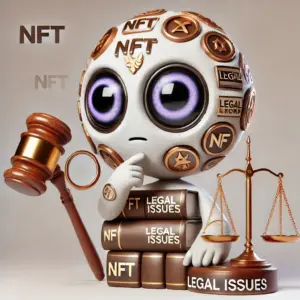In the ever-evolving landscape of technology, the rise of blockchain and non-fungible tokens (NFTs) has opened up a multitude of possibilities for innovation across various industries. One particularly intriguing area of application is in the realm of elections. Could NFTs, with their inherent characteristics of security, transparency, and immutability, revolutionize the way we conduct elections? This article delves into the potential of NFTs in digital voting and explores the challenges and considerations that need to be addressed before this technology can be seamlessly integrated into mainstream elections.
The Need for Enhanced Election Security
Traditional paper-based voting systems have proven to be susceptible to various forms of manipulation, including voter fraud, ballot stuffing, and vote tampering. These issues cast doubt on the integrity of elections and undermine public trust in the democratic process. Digital voting, on the surface, offers a promising solution to these challenges, but it also presents new security risks that must be carefully addressed.
The anonymity and remote nature of digital voting can make it more challenging to verify voter identity and prevent double voting. Additionally, the centralized nature of many digital voting systems leaves them vulnerable to hacking and manipulation. These concerns have fueled skepticism and resistance to the adoption of digital voting technologies.
Enter NFTs: A Potential Solution for Secure Digital Voting
NFTs, unique digital tokens stored on a blockchain, hold the potential to address the security vulnerabilities of traditional and digital voting systems. Their inherent characteristics of immutability, transparency, and decentralization make them well-suited for recording and verifying votes.
Immutability: Once an NFT is created, its unique identifier and associated data cannot be altered or deleted, ensuring the integrity of voter records. This immutability safeguards against vote tampering and manipulation.
Transparency: All NFT transactions are recorded on a public blockchain, making it possible for anyone to track and verify the voting process, enhancing transparency and accountability.
Decentralization: The decentralized nature of blockchain technology eliminates the need for a single, centralized authority to manage and control the voting system. This decentralization distributes trust and power among multiple participants, reducing the risk of single points of failure or manipulation.
Implementing NFT-based Digital Voting Systems
To effectively integrate NFTs into digital voting systems, several key considerations need to be addressed:
Voter Identity Authentication: A secure and reliable method for verifying voter identity is crucial to prevent voter impersonation and double voting. This could involve leveraging existing identity verification systems or implementing blockchain-based solutions.
Vote Recording and Verification: NFTs can be used to represent individual votes, each with a unique identifier and associated data. This allows for secure storage and transparent record-keeping of votes.
Voting Privacy: While NFTs provide transparency, they should not compromise voter anonymity. Mechanisms for maintaining the privacy of voter choices while ensuring the integrity of the voting process need to be developed.
Technical Scalability: NFT-based voting systems need to be able to handle large volumes of votes and transactions efficiently to ensure the smooth and timely conduct of elections.
Legal and Regulatory Compliance: The implementation of NFT-based voting systems must comply with all applicable laws and regulations related to elections and data protection.
Addressing Challenges and Considerations
Despite the potential benefits of NFTs for digital voting, there are several challenges that need to be addressed before this technology can be widely adopted:
User Adoption: Transitioning from traditional voting methods to a new technology like NFTs requires widespread public education and adoption. This may take time and effort to achieve.
Technical Expertise: Implementing NFT-based voting systems requires specialized technical expertise, which may not be readily available in all jurisdictions.
Cost and Infrastructure: Establishing and maintaining the infrastructure for secure and scalable NFT-based voting systems can be costly.
Public Trust and Confidence: Gaining public trust and confidence in the security and integrity of NFT-based voting systems is paramount for their successful adoption.
Conclusion
NFTs hold immense potential to revolutionize digital voting by enhancing security, transparency, and accessibility. However, careful consideration and addressing of the challenges and considerations outlined above are essential for the successful implementation of NFT-based voting systems. As technological advancements and regulatory frameworks evolve, NFTs could emerge as a transformative force in shaping the future of secure, transparent, and democratic elections.






